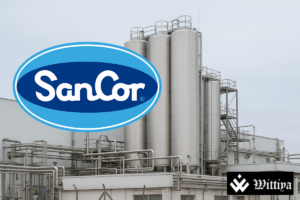SanCor, an iconic Argentine dairy cooperative, has filed for preventive insolvency in an effort to restructure its debts and avoid bankruptcy. The move is seen as a last-ditch attempt to preserve the company’s operations and jobs, although risks of liquidation remain if restructuring plans fail.
Founded in 1938, SanCor was once one of the most prominent dairy producers in Argentina. However, years of financial instability, along with challenges in the dairy market, have left the company in a precarious position. The cooperative’s recent move to request preventive insolvency marks a critical attempt to safeguard its operations, which include the production and distribution of milk, cheese, and other dairy products to both local and international markets.
In the face of mounting financial pressure, SanCor’s leadership has chosen preventive insolvency as a tool for debt restructuring rather than immediate bankruptcy. The process involves the appointment of three independent trustees who will oversee the company’s restructuring efforts. Their responsibilities will include reporting on the cooperative’s fund availability, verifying credits, and managing creditor agreements.
Mariano Prono, one of the trustees, emphasized the complexity of the case, noting the scale of the restructuring process. Josefina Prono, another trustee, stressed that the filing is meant to give SanCor time to renegotiate its debts and continue operations without the immediate threat of liquidation. However, if the restructuring plans fail or agreements with creditors are not reached, the company could still face bankruptcy and liquidation.
The outcome of SanCor’s insolvency filing remains uncertain, and stakeholders, including employees and suppliers, will be closely monitoring developments. The dairy sector in Argentina, a key part of the country’s agricultural exports, will also feel the effects of SanCor’s financial fate.
For now, SanCor is continuing normal operations, but the company’s future hinges on the success of the debt restructuring process and the ability to adapt to a changing economic environment.

